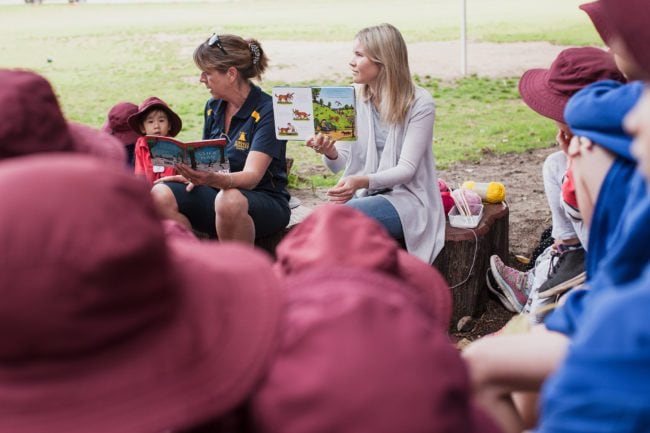Abstract
The relationship between child health, wellbeing and education demonstrates that healthier and happier children achieve higher educational attainment. An engaging curriculum that facilitates children in achieving their academic potential has strong implications for educational outcomes, future employment prospects, and health and wellbeing during adulthood. Outdoor learning is a pedagogical approach used to enrich learning, enhance school engagement and improve pupil health and wellbeing. However, its non-traditional means of achieving curricular aims are not yet recognised beyond the early years by education inspectorates. This requires evidence into its acceptability from those at the forefront of delivery. This study aimed to explore headteachers’, teachers’ and pupils’ views and experiences of an outdoor learning programme within the key stage two curriculum (ages 9–11) in South Wales, United Kingdom. We examine the process of implementation to offer case study evidence through 1:1 interviews with headteachers (n = 3) and teachers (n = 10) and focus groups with pupils aged 9–11 (n = 10) from three primary schools. Interviews and focus groups were conducted at baseline and six months into implementation. Schools introduced regular outdoor learning within the curriculum. This study found a variety of perceived benefits for pupils and schools. Pupils and teachers noticed improvements in pupils’ engagement with learning, concentration and behaviour, as well as positive impacts on health and wellbeing and teachers’ job satisfaction. Curriculum demands including testing and evidencing work were barriers to implementation, in addition to safety concerns, resources and teacher confidence. Participants supported outdoor learning as a curriculum-based programme for older primary school pupils. However, embedding outdoor learning within the curriculum requires education inspectorates to place higher value on this approach in achieving curricular aims, alongside greater acknowledgment of the wider benefits to children which current measurements do not capture.
Conclusions
Participants in this study supported the case for outdoor learning in the KS2 curriculum, identifying benefits ranging across the personal, social, physical and curricular domains. The schools in this study reported a variety of benefits of outdoor learning for both the child and the teacher and for improving health, wellbeing, education and engagement in school. Findings highlight that outdoor learning has the ability to enthuse, engage and support children of all learning abilities in reaching curricular aims alongside positive improvements to health and wellbeing. With the relationship between education and health well documented throughout the life course, this study supports outdoor learning as a method of facilitating pupils in achieving their academic potential, improving educational experiences and attainment and ultimately improving future health outcomes and employment pathways.
Importantly, this study contributes to the gap in experiences reported by both pupils and teachers of outdoor learning programmes in the older ages of primary schools. Findings from this study offer schools important insights into the barriers and facilitators of implementing a regular outdoor learning programme within the KS2 curriculum. However, these findings highlight the gap that exists between the health, wellbeing and wider educational benefits achieved through outdoor learning, the lack of tools in evidencing these and the narrow measurements in which schools are judged on by education inspectorates. Results from this study advocate for additional help and support from education inspectorates to enable schools to feel that ‘non-traditional’ learning methods are valued and can address the curriculum pressures in which schools are measured on. More support, training and engagement for schools as well as direction from inspectorates is required if outdoor learning is to become a more mainstream method in addressing curriculum aims.

